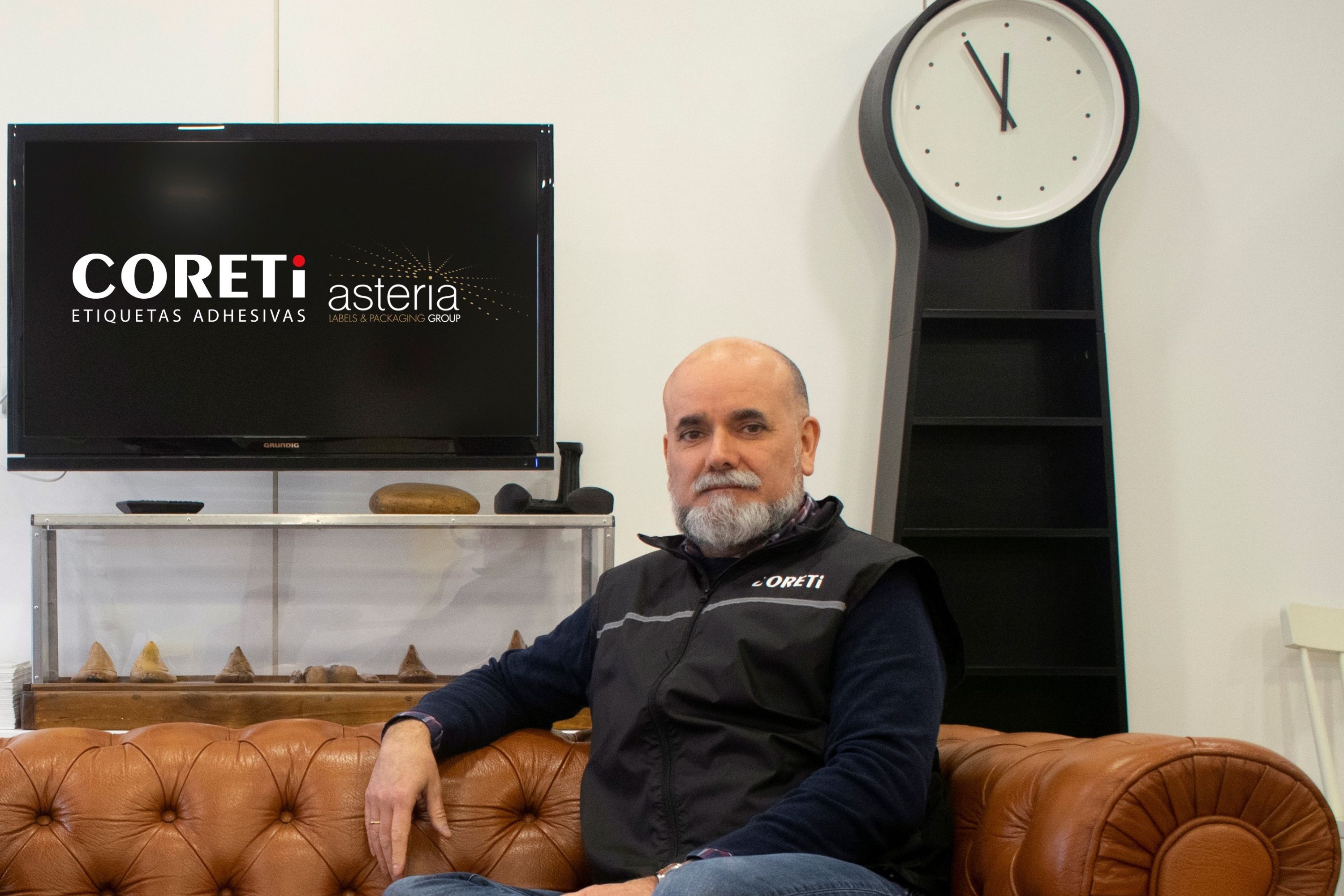
Latest information

Interview with Manuel Deza, Managing Director of Coreti
A team of young, veteran and committed workers make up the label company Coreti from A Coruña, which has just been recognised with the Empresa Responsabilízate seal of the Xunta de Galicia for being a sustainable, responsible and committed SME with environmental, social and good governance (ESG) values.
When and how was the company born?
Coreti was born in A Coruña in a small ground floor of barely 100 m2 and with only two workers, more than thirty years ago by the hand of Luis Fernández Vilela, founder of the company and former general manager, who wanted to make the company his own with which he would successfully develop his profession. Today, 32 years later, our facilities exceed 4,500 m2, we have just over a hundred workers and we are in the top ten of the most important companies in the adhesive label sector in our country. In addition, we have become part of the Asteria group (Asteria, Labels and More), which opens up interesting opportunities at national and international level to provide a global packaging solution to our current and future customers.
The company has grown exponentially, what do you think have been the keys to its success and the keys to adapting to a constantly evolving market?
Without the people who form and have formed part of our team, Coreti would not be what it is, nor would Coreti be where it is today. They are the key to our success, but so have been our customers, whom we have never taken out of our minds and whom we always keep in mind, who have made us grow thanks to the challenges they have set us, the application needs we have met and the problems we have tried to solve.
What sets Coreti apart in the adhesive label market, where it has become a benchmark?
Thinking about our customers, their needs and their product, advising them on how to achieve the best labelling solution, is something we value.
Our significant presence in the high added value label market, for wines, beverages and even oils, endorsed by the relevant national and international awards we have received for some of our work, also makes us a reference in the sector.
What kind of sectors or companies do you mainly work for?
At Coreti we work for all economic sectors and industrial activities, from wine, beverages and spirits, through oil, to logistics, food, supermarkets, textiles, automotive, cleaning and home care products, etc...
Our mission is to be able to provide a global labelling and packaging solution to any company, sector or industry that needs it. Being part of the Belgian group Asteria, a European label and packaging giant, also helps us to expand our product offering.
What role does R&D play in Coreti's philosophy and what is the innovative focus?
Well, it really plays a key role. We have technical and trained personnel to provide solutions to any challenge or challenge, however complicated it may seem at first. In addition, we have the support of a large group of packaging experts, which means that we work on Research, Development and Innovation on a daily basis.
A clear example of this is when we make a design that is almost impossible to turn into a label a reality. To do this, all the Coreti team gets down to work advising on the best material, giving the best manufacturing option, and even innovating in work or production methodologies to achieve the desired result in a simpler, more agile and mechanical way.
Believe it or not, some of the labels we make are true works of art and even works of engineering.
In terms of sustainability, you have a circular economy plan, what are its objectives and on which pillars is it based?
Our Circular Economy Plan was born from the need to put the 5 R's of this philosophy at the top of our company's priorities. A philosophy that cannot be just a trend, but must be an absolute obligation in all areas.
To this end, and from all areas, we work to reduce the consumption of raw materials, tools, energy... and therefore also waste, achieving savings for the benefit of the planet. We are committed to the reuse of everything we can in our entire production process and to repair, to the detriment of a policy of use and throw away. Likewise, the correct separation and subsequent recycling of all waste, disused material, tools, etc... is part of our daily work.
What challenges does Coreti face in the short-medium term?
Despite the global economic situation, we continue to grow little by little, but with sure steps and we continue to take care of our customers and bet on new ones that we also want to take care of, as well as maintaining our support to the schools in the sector, so that they continue to train professionals who in the future may form part of our company or others in the labelling sector.